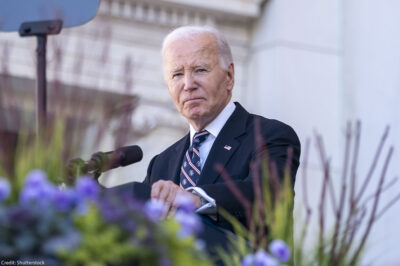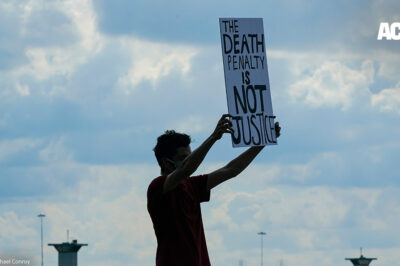Ő“◊” ”∆Ķand Partners Challenge Death Qualification and the Death Penalty in Kansas
KANSAS CITY, Kan. ‚ÄĒ The Ő“◊” ”∆Ķ, the Ő“◊” ”∆Ķof Kansas, the Kansas Death Penalty Unit, Hogan Lovells, and Ali & Lockwood filed a challenge yesterday to the Kansas death penalty and to an unconstitutional jury selection practice unique to death penalty trials. The practice, called ‚Äúdeath qualification,‚ÄĚ dictates that to serve on a capital jury, a prospective juror must be willing to impose the death penalty.
The Ő“◊” ”∆Ķand its co-counsel argue that death qualification is discriminatory, unconstitutional, and undermines the principles at the core of the legal system. Studies show that Black people, women, and those of religious faith are more likely to oppose the death penalty. As a result, death qualification warps the jury from a cross-section of peers to be whiter, more male, more conviction prone, less likely to debate the evidence, and far more likely to sentence a defendant to death.
‚ÄúEvery person accused of a crime is entitled to a fair, impartial jury, but that‚Äôs never the reality in capital cases,‚ÄĚ said Cassandra Stubbs, director of the ACLU‚Äôs Capital Punishment Project. ‚ÄúThe evidence is overwhelmingly consistent that Black Kansans are disproportionately disqualified from serving on capital juries. Death qualification, like the death penalty itself, is unconstitutional and undermines justice for everyone. We are committed to ending both.‚ÄĚ
By systemically barring Black community members from fully participating in jury service, death qualification violates the rights of both the accused and prospective jurors alike. Removing Black voices from capital juries perpetuates the legacy of all-white juries that have long condemned Black individuals to death.
Death qualification is one piece of what makes the death penalty in Kansas racist, unjust, and unconstitutional. New evidence shows that every aspect of the death penalty ‚ÄĒ from who gets charged, to who has a fair trial, to who gets sentenced ‚ÄĒ echoes a long history of racial bias in the criminal legal system. In Kansas, there is an undeniable line connecting the state‚Äôs history of racial terror to its modern administration of the death penalty. When lynching became less publicly and politically acceptable, the death penalty emerged as a new form of racialized violence.
‚ÄúThe death penalty in Kansas is unjust from start to finish and goes against all of the most fundamental principles of justice,‚ÄĚ said Katie Ali, attorney at Ali & Lockwood. ‚ÄúFrom its disproportionate impact on Black Kansans to the high risk of wrongful convictions, it is clear that the death penalty serves neither fairness nor public safety. It‚Äôs time for Kansas to abandon this deeply unjust system.‚ÄĚ
In a series of hearings beginning on Oct. 28, the Ő“◊” ”∆Ķand co-counsel will present evidence and testimony from leading experts nationwide demonstrating that the death penalty in Kansas and death qualification are unconstitutional and racially discriminatory. The Ő“◊” ”∆Ķfiled the challenges on behalf of Antoine Fielder, who is pretrial and facing capital charges in Wyandotte County. His case has been joined with another pretrial capital defendant, Hugo Villanueva, for the purpose of these hearings only.





